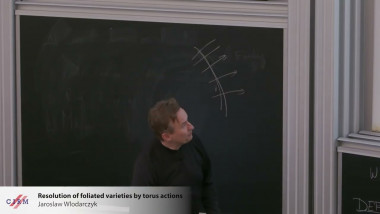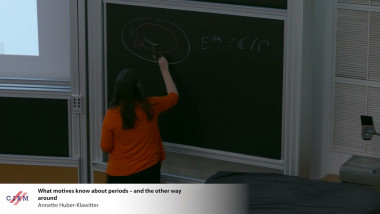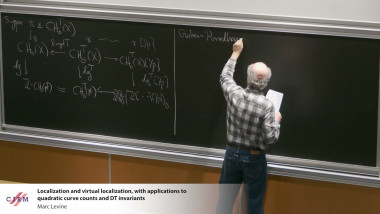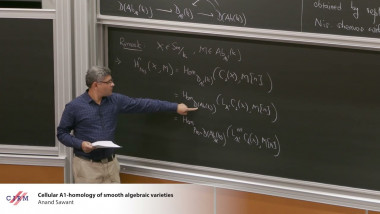Appears in collection : Dmitry Kaledin - Motives from the Non-commutative Point of View
Motives were initially conceived as a way to unify various cohomology theories that appear in algebraic geometry, and these can be roughly divided into two groups: theories of etale type, and theories of cristalline/de Rham type. The obvious unifying feature of all the theories is that they carry some version of a Chern character map from the algebraic K-theory, and there is a bunch of “motivic” conjectures claiming that in various contexts, this map can be refined to some “regulator map” that is not far from an isomorphism. Almost all of these conjectures are still wide open.One observation whose importance was not obvious at first is that K-theory is actually defined in a much larger generality: it makes sense for an associative but not necessarily commutative ring. From the modern of of view, the same should be true for all the theories of de Rham type, with differential forms replaced by Hochschild homology classes, and all the motivic conjectures should also generalize. One prominent example of this is the cyclotomic trace map of B¨okstedt–Hsiang–Madsen that serves as a non-commutative analog of the regulator in the p-adic setting.While the non-commutative conjectures are just as open as the commutative ones, one can still hope that they might be more tractable: after all, if something holds in a bigger generality, its potential proof by necessity should use much less, so it ought to be simpler. In addition to this, non-commutative setting allows for completely new methods. One such is the observation that Hochschild Homology is a two-variable theory: one can define homology groups of an algebra with coefficients in a bimodule. These groups come equipped with certain natural trace-like isomorphisms, and this already allowed one to prove several general comparison results.
![[1241] Théorie de l’homotopie motivique et groupes d’homotopie stables](/media/cache/video_light/uploads/video/Bourbaki.png)















